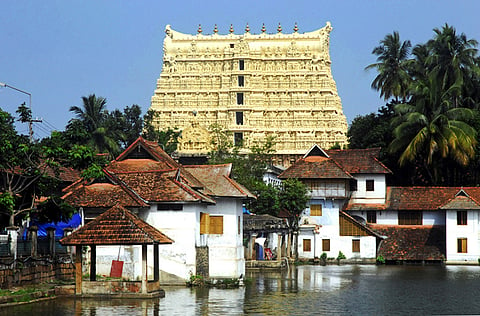Who gets to keep $1 trillion worth assets of India's richest temple in Kerala?
Family running Sree Padmanabhaswamy Temple for centuries still have a say: Supreme Court

Dubai: A decision has finally been made on who should have control of the richest temple in India, with assets estimated at $1 trillion. India’s top court has ruled that the royal family – which had been associated with the temple for centuries - will continue to be associated with its running.
The decision on the Sree Padmanabhaswamy Temple in Thiruvananthapuram, Kerala – one of south India’s iconic landmarks – came after nine years in legal limbo. The estimated $1 trillion includes holdings of gold and jewellery locked up in vaults, and whose existence was known to all only a decade or so ago. These holdings haven’t seen the light of day for well hundreds of years now.
A win for the Family
Until 2010-2011, the presence of the treasure trove kept in various cellars under the temple was passed off as a myth – one among the hundreds of thousands associated with the Hindu religion and the many temples in the country.
The Sree Padmanabhaswamy Temple was built in the 16th century and all through the years since was associated with the Royal Family of Travancore in the southern most part of Kerala. But when public knowledge of the treasure came to light a decade ago, a tug of war broke out as to who should have the rights to it.
There were some who felt that actual ownership and management of the temple’s affairs should vest with the government, in this case the Kerala state. That given the vastness of the assets the state can better provide for the security of these.
Monday's Supreme Court decision overturns a lower court ruling that had granted the Kerala state full rights to the temple and its management.
But all through these 10 years, the royal family maintained that there the true custodians of the temple and keepers of the faith. And that they should retain the rights to managing the rituals of the temple. In effect, retain their say over the running of the temple.
“This is what the Supreme Court decision has sided with – that the family has the temporal and moral rights over the temple and its wealth,” said a senior lawyer based in Delhi. “And that the discovery of $1 trillion in ancient gold should not deprive them of rights they had held since the 16th century.”
Sign up for the Daily Briefing
Get the latest news and updates straight to your inbox








